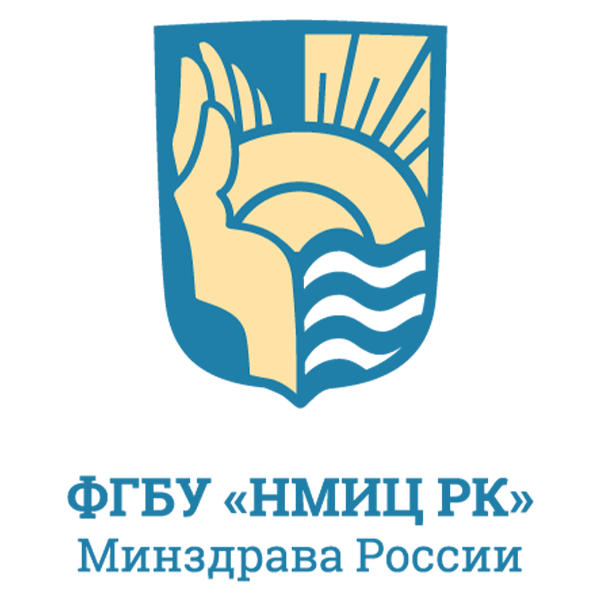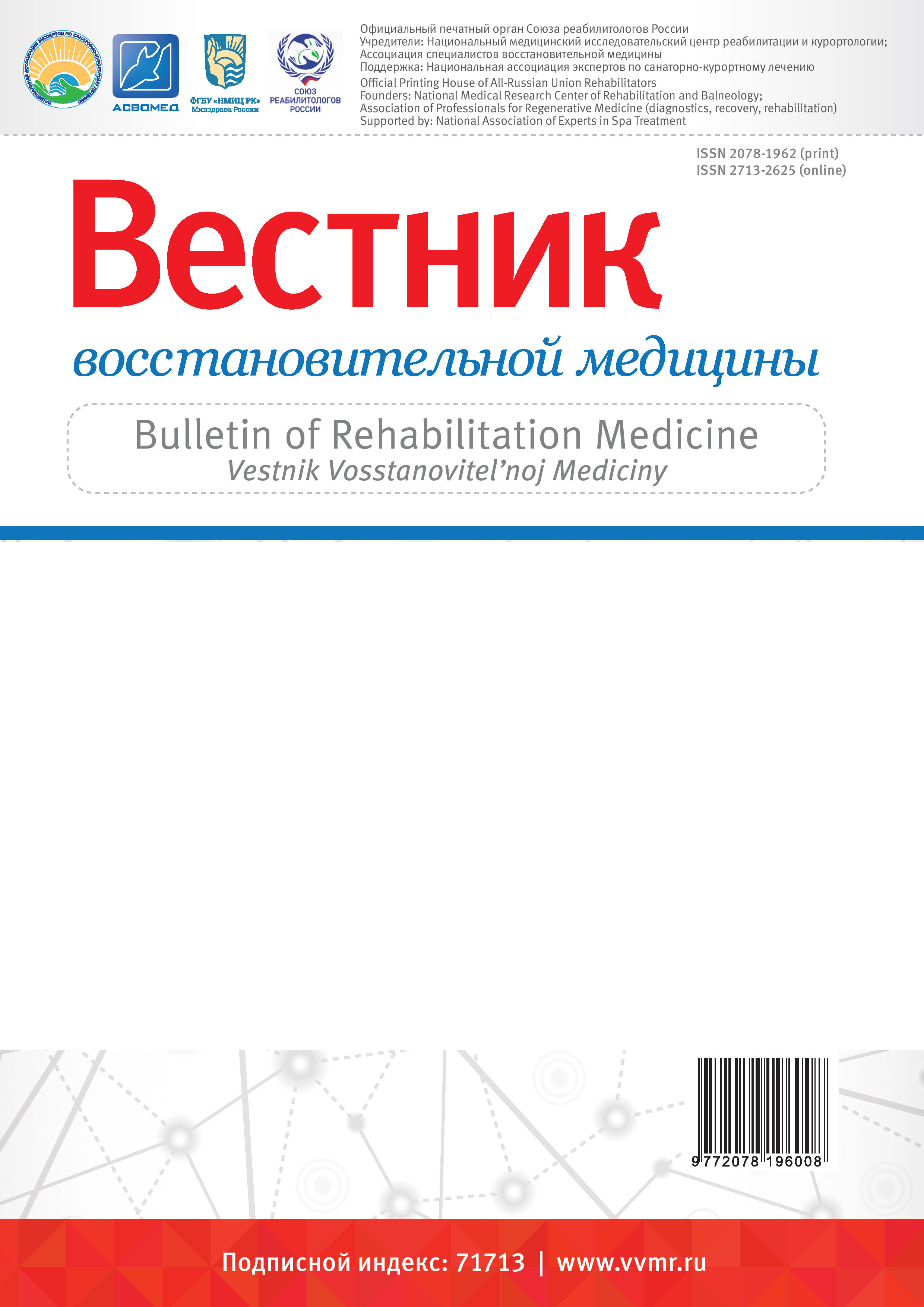As part of an analytical review of federal law "On the basics of protecting the health of citizens in the Russian Federation", an attempt was made to distinguish the conceptual independence of medical rehabilitation among categories such as medical care and treatment. The analysis showed that the definition of "treatment" indicates the same goal as for the hierarchically higher category "medical care". For this reason, the definition of treatment meets the goal of another hierarchically equal category of "medical rehabilitation". The absence of an ideological difference between the concepts of "treatment" and "medical rehabilitation" raises doubts about the independence of the latter term. The approved definitions of other hierarchically equal categories "prevention", "diagnostics", "medical rehabilitation" have their own independent target orientation, cascading with the purpose of providing medical care. Due to the identity of "treatment" and "medical rehabilitation" terms it is impossible to divide them according to objects or methods of exposure. Within the framework of the fixed concepts, treatment and rehabilitation impacts the same objects: structures, functions, and categories of life. There are no differences in the methods of exposure during treatment and medical rehabilitation, i.e. between medical interventions and interventions of a medico-psychological nature, whereas the current definition of "medical intervention" includes manipulations performed by a non-medical professional, concerning persons’ physical or mental state of and having a rehabilitation orientation. Dividing the concepts of "treatment" and "medical rehabilitation" by subjects responsible for achieving the goal is not enough to distinguish the category of "treatment". The independence of this category could be emphasized by narrowing the definition of treatment, defining its purpose solely as "elimination or relief of the disease or condition manifestations". Such a concept meets the boundaries of medical care goal, but refers only to its part, it has its own hierarchy level in the medical care compounds, but it does not occupy the area of "medical rehabilitation" and other hierarchically equal categories.
medicinskaya reabilitaciya, medicinskaya pomosch', konceptual'nost' medicinskoy reabilitacii
1. Pava-Ripoll N.A., Granada-Echeverry P. The emergence of medical professions of [re]habilitation and childhood: a history intertwined with theoretical tensions. Cien Saude Colet. 2016; 21(3): 833-842. DOIhttps://doi.org/10.1590/1413-81232015213.20162014
2. Conti A.A. Western medical rehabilitation through time: a historical and epistemological review. The Scientific World Journal. 2014: 2014: 432506. DOIhttps://doi.org/10.1155/2014/432506
3. Gutenbrunner C., Lemoine F., Yelnik A. et al. The field of competence of the specialist in physical and rehabilitation medicine (PRM). Annals of Physical and Rehabilitation Medicine. 2011; 54(5): 298-318. DOIhttps://doi.org/10.1016/j.rehab.2011.05.001
4. De Korvin G., Delarque A. Physical and rehabilitation medicine section and board of the European Union of Medical Specialists. Community context; history of European medical organizations; actions under way. Annals of Physical and Rehabilitation Medicine. 2009; 52(7-8): 594-607. DOIhttps://doi.org/10.1016/j.rehab.2009.06.006
5. Sigida E.A., Luk'yanova I.E., Suhanov V.G. Problemy reabilitacii: social'nyy i medicinskiy aspekty. Teoriya i tehnologii social'noy raboty. 2006; (4): 54-61.
6. Nechaev V.S., Magomedova Z.A. Medicinskaya reabilitaciya: istoriya voprosa i definicii. Problemy social'noy gigieny, zdravoohraneniya i istorii mediciny. 2017; 25(4): 221-225. DOIhttps://doi.org/10.1016/0869-866X-2017-25-4-221-225
7. VOZ. Informacionnye byulleteni. Dostupno: https://www.who.int/ru/news-room/fact-sheets/detail/rehabilitation.
8. Prevention vs. Treatment Behavioral Health Continuum of Care Model. The Wyoming Department of Health website. Available at: https://health.wyo.gov/publichealth/prevention/substanceabuseandsuicide/what-is-prevention/prevention-vs-treatment
9. Ivanova G.E., Mel'nikova E.V., Shamalov N.A., Bodrova R.A., Shmonin A.A., Suvorov A.Yu., Nyrkov G.V., Tulupov D.O. Ispol'zovanie MKF i ocenochnyh shkal v medicinskoy reabilitacii. Vestnik vosstanovitel'noy mediciny. 2018; 3(85): 14-20.
10. Yunusov F.A., Kochubey A.V. Integraciya instrumentov Mezhdunarodnoy klassifikacii funkcionirovaniya, ogranicheniya zhiznedeyatel'nosti i zdorov'ya i sovremennoy modeli reabilitacionnogo processa. Nevrologicheskiy vestnik. Zhurnal im. V.M. Behtereva. 2009; 4(41): 22-26.
11. Shmonin A.A., Mal'ceva M.N., Mel'nikova E.V., Ivanova G.E. Bazovye principy medicinskoy reabilitacii, reabilitacionnyy diagnoz v kategoriyah MKF i reabilitacionnyy plan. Vestnik vosstanovitel'noy mediciny. 2017; 2(78): 16-22.
12. Ivanova G.E., Mel'nikova E.V., Shmonin A.A., i dr. Primenenie mezhdunarodnoy klassifikacii funkcionirovaniya v processe medicinskoy reabilitacii. Vestnik vosstanovitel'noy mediciny. 2018; 6(88): 2-77.
13. Ryan G. What Are the Main Types of Physical Rehabilitation? Sheltering arms website Available at: https://www.shelteringarms.com/physical-rehabilitation-vs-therapy/
14. Castin M., Behrens A., Lyon S. OT vs. PT vs. SLP: Your Rehab Therapy Team Explained? OT Potential Club website Available at: https://otpotential.com/occupationaltherapy-vs-physicaltherapy-vs-speechtherapy
15. Ivanova G.E., Truhanov A.I. Global'nye perspektivy razvitiya medicinskoy reabilitacii. Vestnik vosstanovitel'noy mediciny. 2017; 6(82): 2-6.
16. Ivanova G.E., Mel'nikova E.V., Belkin A.A., i dr. Kak organizovat' medicinskuyu reabilitaciyu? Vestnik vosstanovitel'noy mediciny. 2018; 2(84): 2-12.
17. Wallesch C.W., Lautenschläger S. Frührehabilitation und Rehabilitation im Krankenhaus. Bundesgesundheitsblatt Gesundheitsforschung Gesundheitsschutz. 2017; 60(4): 419-426. DOIhttps://doi.org/10.1007/s00103-017-2522-0
18. Galizia G., Balestrieri G., De Maria B. et al. Role of rehabilitation in the elderly after an acute event: insights from a real-life prospective study in the subacute care setting. European Journal of Physical and Rehabilitation Medicine. 2018; 54(6): 934-938. DOIhttps://doi.org/10.23736/S1973-9087.18.05221-8
19. Pils K. Aspects of physical medicine and rehabilitation in geriatrics. Wiener Medizinische Wochenschrift. 2016; 166(1-2): 44-47. DOIhttps://doi.org/10.1007/s10354-015-0420-3
20. Leniger T., Heßling A. Die Medizinisch-beruflich orientierte Rehabilitation (MBOR) in der Neurologie erfordert eine individualisierte Rehabilitandenidentifikation. Fortschritte der Neurologie Psychiatrie. 2019; 87(2): 92-102. DOIhttps://doi.org/10.1055/a-0695-9074
21. Koch-Gromus U., Bengel J., Wallesch C. Neue Herausforderungen für die Medizinische Rehabilitation. Bundesgesundheitsblatt Gesundheitsforschung Gesundheitsschutz. 2017; 60(4): 365-367. DOIhttps://doi.org/10.1007/s00103-017-2539-4
22. Linden, M., Bernert S., Funke A. et al. Medizinische Rehabilitation unter einer Lifespan-Perspektive. Bundesgesundheitsblatt Gesundheitsforschung Gesundheitsschutz. 2017; 60(4): 445-452. DOIhttps://doi.org/10.1007/s00103-017-2520-2
23. Buschmann-Steinhage, R. Trends in der medizinischen Rehabilitation. Bundesgesundheitsblatt Gesundheitsforschung Gesundheitsschutz. 2017; 60(4): 368-377. DOIhttps://doi.org/10.1007/s00103-017-2513-1
24. Deck R., Hofreuter-Gätgens K. Soziale Ungleichheit in der medizinischen Rehabilitation. Bundesgesundheitsblatt Gesundheitsforschung Gesundheitsschutz. 2016; 59(2): 245-251. DOIhttps://doi.org/10.1007/s00103-015-2284-5
25. Gimigliano F., Negrini S. The World Health Organization "Rehabilitation 2030: a call for action". European Journal of Physical and Rehabilitation Medicine. 2017; 53(2): 155-168. DOIhttps://doi.org/10.23736/S1973-9087.17.04746-3
26. Gutenbrunner C., Bickenbach J., Melvin J., Lains J., Nugraha B. Strengthening health-related rehabilitation services at national levels. Journal of Rehabilitation Medicine. 2018; 50(4): 317-325. DOIhttps://doi.org/10.2340/16501977-2217





